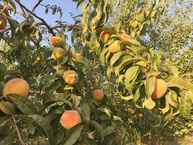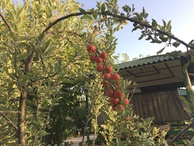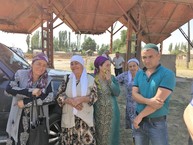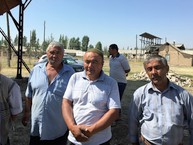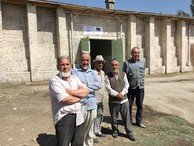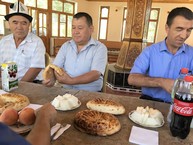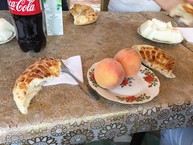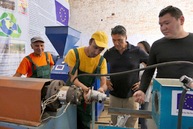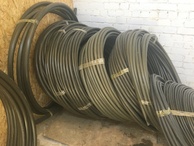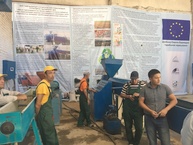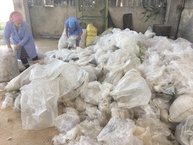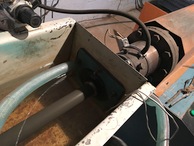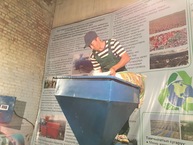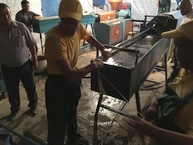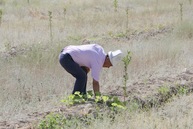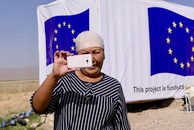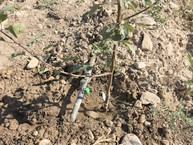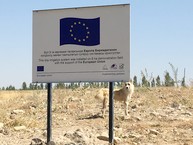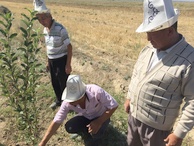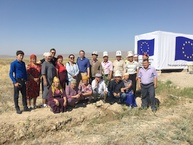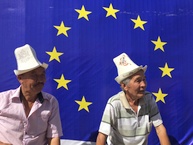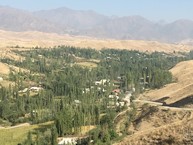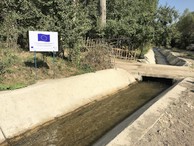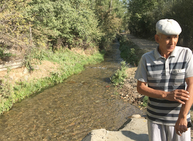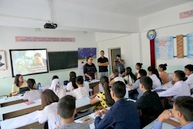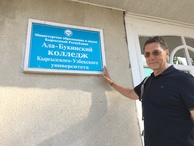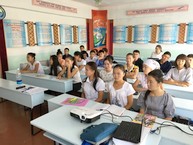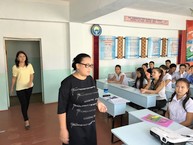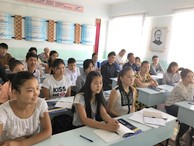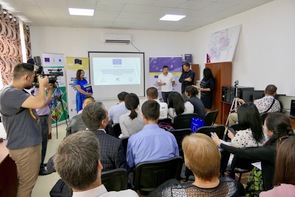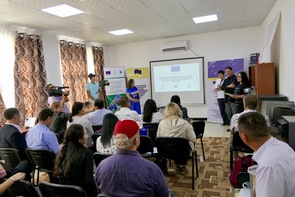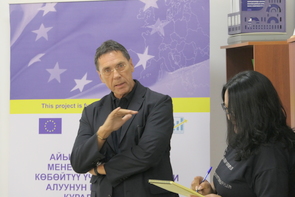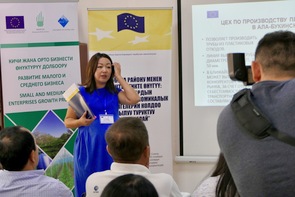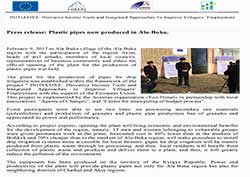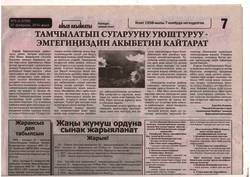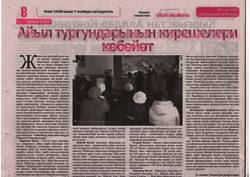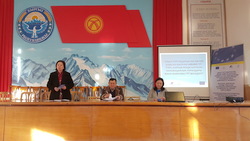Articles & Publications
Press release by the project management, Sept 7, 2017
The European Union funded Project “INITIATIVE: Innovative Income Tools and Integrated Approaches to Improve Villagers’ Employment” is implemented by the Austrian non-profit organization EcoHimal in partnership with local NGOs – Public Association “Agents of Changes” and Public Association “Centre for strategizing of budget process”. The Project covers four Aiyl Aimaks of the Ala-Buka rayon of the Djalal-Abad oblast – Oruktu, Ak-Korgon, Ala-Buka and Pervomay. Project implementation period is 2 years, from 1 December 2015 – 30 November 2017.
Overall objective of the project is the mobilization of local community resources to ensure sustainable agricultural development and poverty alleviation among the most vulnerable groups of the rural population in the Ala-Buka rayon of Jalal-Abad oblast, namely:
• Support of local innovative initiatives to improve employment and ensure sustainable income- generating activities among rural youth;
• Creation of favourable infrastructure conditions to increase agricultural productivity and improve life safety in the most vulnerable border communities;
• Strengthening the capacity of local communities in effective management of business activities and improving the quality of living in rural areas.
The Project is aimed at improving the quality of living of the target region’s population, particularly socially vulnerable women, young people between 18-30 years and representatives of ethnic minorities.
MAIN COMPONENTS OF THE PROJECT ARE:
1) Launching of a fruit and vegetable processing plant in Ak-Korgon Aiyl Okmotu. This Project component provides for procurement, delivery and assembling of necessary equipment and training of plant operator. A premises for the plant and its connection to communications is ensured by local self-government bodies on a free-of-charge basis.
Currently, the co-operative “Eco Shire” is preparing the premises for installation of equipment for the plant producing directly expressed juice. Project implementers have conducted a tender for the purchase of equipment; the equipment purchased is awaiting delivery from China. It is expected that the plant will produce juice from apples, including the apples grown in demonstration fields with drip irrigation.
2) Launching of plant producing hose pipes for drip irrigation systems in Ala-Buka Aiyl Okmotu. The Project budget covered procurement, delivery and installation of necessary equipment and training of plant operator. Post-consumer polyethylene bags and plastic bottles will be used as raw material for hose pipe production. Premises for the plant and its connection to communications ensured by local self-government bodies on a free-of-charge basis. 30 containers to collect plastic waste are produced and installed in all AAs of Ala-Buka rayon. Monthly volume of collected polyethylene (PE) waste amounts to about 1000 kg.
Procured equipment for hose pipe producing plant, including (1) line on production of raw material from plastic waste (breaking machine, agglomerator, extrusion line and chopping cutter) and (2) hose pipe producing line.
• The total capacity of two lines of 180 kW
• Pipe production line produces pipes with a diameter of 20 mm, 25 mm, 32 mm, 40 mm and 50 mm.
• Depending on diameter, for the production of 100 meters of pipes from 15 up to 40 kg of used polyethylene (plastic waste) is required.
• The average production capacity of pipe production line is 70 LM/h. During single-shift production the line can produce 9240 LM/month. The current need of Ala-Buka region can be met (54 000 linear meters per year) in 6 months. It should be noted that the monthly performance of the plant can be increased by entering two-shift work schedule.
• Average raw materials consumption is 2125 kg/month. Potential sources of raw materials: I-collection of plastic waste from special rubbish bins installed at the expense of the project in each village of 4 pilot ayil aimaks; II - receiving plastic waste from industrial and mining companies (at the moment the members of the cooperative "Ala-Buka Agroecoservice" prepares documents for participation in the tender for the waste removal of "KAZ minerals"); III-exchange of crushed pet bottles for the bottle lids, IV-procurement of plastic waste; V- procurement raw materials.
• Forecasted cost is 40% lower than in the markets of Bishkek and 70% cheaper than in the markets of the target area. Due to these differences one can establish a fund for renewal and modernization of equipment.
• To service two lines at least 12 permanent workers, including raw feeders and sorters will be employed.
The equipment is been produced on the territory of the Kyrgyz Republic. Power and productivity of the plant will provide plastic pipes not only for Ala-Buka region but also for neighbouring districts of Chatkal and Aksy regions.
Since the plastic pipes are produced mainly from plastic waste through its processing, the cooperative procures these products, local residents benefit from collection of plastic waste and products and deliver them to a plant, and thus it will greatly reduce the pollution of the environment.
Given the acute shortage of irrigation water in Ala-Buka region, project implementers and beneficiaries expect that cheapness of produced plastic pipes will make procedure to install drip irrigation systems more accessible for local farmers and thereby enhance the well-being of local residents and the district as a whole.
Both lines at the end of the project will be transferred to the cooperative “Ala-Buka agroecoservice” created within the project. Cooperative members will be trained in the basics of business planning and together with expert business plan will be elaborated for the development of the pipe production plant.
3) Introduction of drip irrigation systems in the pilot area of 15 ha demonstration fields in Ak-Korgon and 1-May Aiyl Okmotu. Procurement and installation of equipment for drip irrigation system was made at the Project's expense.
During the project implementation period, the installation of a drip irrigation systems for 15 hectares of demonstration fields in targeted aiyl aymaks – 1-May - 7 hectares and Ak-Korgon - 8 hectares – has been successfully completed. Equipment for drip irrigation system was purchased through a competition of commercial offers, one of the main conditions for the participants was the procurement of hose pipes from the cooperative Ala-Buka AgroEcoservice, which was established within the project and currently operates a hose pipe producing plant. Seedlings for demonstration fields were provided by “Ak-Korgon Agroecoservise” and “1-May Agroekoservise” cooperatives in total, over 3000 seedlings of fruit trees were planted on 15,000 hectares.
4) Rehabilitation of a 550-m section of irrigation channel in Oruktu-Say. The Project budget covered Feasibility study of the channel, designing project of channel rehabilitation, procurement and delivery of construction materials. All land and construction work was implemented by local self-governments and local inhabitants (ashar).
Rehabilitation (concreting) of 550m of unlined section of irrigation channel in Oruktu AA:
• Estimation of necessary volume of construction materials, machinery and works (feasibility study);
• Procurement of construction materials via commercial offers competition;
• Mobilization of local community for implementation of construction works;
• Uprooting the trees along the channel bed (without shrubs);
• Cleaning the inside of the channel from the clay and other waste by hand;
• Excavation works for the expansion of the channel base and slopes with excavator;
• Completion of the base and slopes manually;
• Gravel bed;
• Gravel laying with compacting, preparation of channel base and slopes manually;
• Concreting of the channel bed using water-proof membrane and water-proof dowel to protect concrete from demolition.
Results:
• Ensured sustainable irrigation water supply. Irrigation channel in Oruktu village provides irrigation water (that is used both for irrigation and domestic needs) to 347 households in Oruktu Sai village, 607 households in Joi Belent village and 200 households in Ala-Buka village, overall 1154 families, from them 403 are Uzbek families, 751 – Kyrgyz, 690 are young families.
• The channel irrigates 120 hectares of Oruktu AA and 160 hectares of Ala-Buka AA, that are irrigated by 331 farmers.
• Water loss on the rehabilitated section is lower than 3%
• Channel capacity increased from 300 litres per second to 400 l/s
• Safety (eliminated threat of flooding and waterlogging) of 100 households (720 people) of Oruktu rayon is ensured.
Unforeseen positive results:
• Collection of fees for water use increased by 8% after channel section rehabilitation.
• It became possible to use 20 ha lands in the nearest 3 years to allocate land plots for building households for 70 young families of Oruktu AA and 80 young families of Ala-Buka AA. Due to rehabilitation of the unlined section of the channel the abovementioned 20 ha of lands gained access to water resources and became usable for living.
5) 4 multifunctional cooperatives were established within the project: « Ala-Buka Agroecoservise», «Ak-Korgon Agroecoservise», “1st of May Agroecoservice” and «Eco Shire». The goal of the multifunctional agricultural cooperatives is to raise the social and economic wellbeing of its’ members.
To achieve this goal each member of the cooperative has accepted the responsibility on following tasks:
· to follow cooperative methods of work and keep its principles: mutual assistance in partnership, democratic decision-making, financial and economic independence and adherence to transparency, accountability, and compliance with the principle of “one member – one vote”, growth of labour efficiency, getting profit and equitable distribution of benefits;
· to apply innovative methods in crop production, processing and sales;
· to provide services to others (maintenance, construction, processing and trade services), to promote the delivery of services and increase benefits of cooperative;
· to constantly improve the level of education and skills of the cooperative members.
6) Strengthening capacity of 600 representatives of project target groups and beneficiaries on planning and organization of income-generating activities, fund raising and project development, effective water management, budgeting process and organization of public hearings, on-site training on drip irrigation, up-to-date methods of agribusiness, etc.
To enhance the capacity of members of cooperatives and other project beneficiaries, the project implementers, based on the needs of the target group, have invited relevant experts: local, European and from other countries. For example:
· To train members of cooperatives on drip irrigation an expert Mr. Alvaro Marco from Spanish organization CINGRAL was invited. Besides, Mr. Marco met with heads of Water Users Associations of 4 target aiyl aimaks to discuss effective management of water resources and give corresponding recommendations.
· To conduct trainings on cooperative development an expert from Nepal Mr. Narayan Dhakal, who has wide experience in creation and development of cooperatives and is named a “father” of cooperatives in Nepal, was invited;
· For practical training in business planning the project team cooperates with the SES (senior expert service). For the moment, SES has found a senior expert for our project, whose tasks are to: improve the knowledge and practical skills of members of target cooperatives in the development of business plans through professional instruction and training; assistance and creation of necessary conditions for independent elaboration of business plans, taking into account the specifics of activities of local entrepreneurs of the opportunistic features of the target region. These training sessions will be held in the Ala-Buka rayon from September 11 to October 3, 2017.
In general, the capacity development programm covered 379 members of local community during 14 trainings.
Press Conference in Ala Buka in September 2017:
Contact information:
Office in Ala-Buka rayon:
Ala-Buka ayil, Ibraimov str, 52
Tel: +996 773053595
Office in Bishkek:
Ibraimov str, 103 Business center «Victory, 3rd floor
Tel: +996 770 892689, +996 312 892689
Project email: proj2015.2016gmail.LÖSCHEN.com
Web site: www.ecohimal.org/kyrgyzstan2015
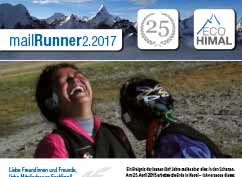
27.02.16
>> Download (pdf)
13.02.16:
>> Download (pdf)

